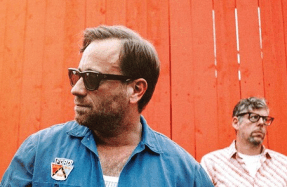THE GHOST OF SKIP JAMES

A YEAR BEFORE BOB DYLAN went electric with a Tobacco ’burst Fender Stratocaster at the 1965 Newport Folk Festival, a bluesman who hadn’t recorded and had rarely performed since the 1930s stunned the festival’s crowd of 15,000 spectators with an electrifying performance of his own.
Just weeks earlier, Nehemiah Curtis “Skip” James had been recovering from cancer treatments in a Tunica, Mississippi hospital when John Fahey and two friends tracked down the 61-year-old legend and persuaded him to play again. His re-emergence came during the 1960s blues revival at a time that also saw the “rediscovery” of Bukka White, Son House, Mississippi Fred McDowell, Mississippi John Hurt and others, who played to new audiences and scored record deals.
Armed only with an acoustic guitar and a microphone, Skip James captivated the Newport audience with his high falsetto and spidery fingerpicking that often commanded all 10 of his fingers. “Skip at Newport ’64 was just transcendent. It was incredible,” recalls Dick Waterman, who witnessed the performance and later managed James’ career until his death in 1969. “He sat down and he set his fingers down on the fretboard, and he took a breath and hit the first note of ‘Devil
You’re reading a preview, subscribe to read more.
Start your free 30 days



